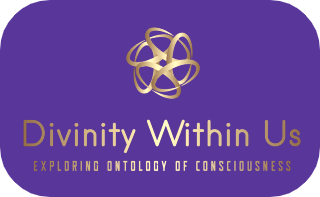Introduction to Awareness and Consciousness
Awareness and consciousness are fundamental concepts in psychology, philosophy, and cognitive science, often used to describe aspects of the human mind. While the terms are frequently used interchangeably, they represent distinct phenomena that pertain to our mental functions and experiences. Awareness can be regarded as the state of being cognizant of one’s surroundings, thoughts, feelings, and sensations, creating a foundational layer of understanding our own existence. In contrast, consciousness encompasses a broader range of mental attributes, including the awareness of oneself and the ability to reflect on one’s thoughts and experiences.
To unpack these intricacies, it is essential to consider how awareness serves as a gateway to consciousness. When we engage in a process of awareness, we may notice something in our environment or a thought in our mind. This recognition prompts a deeper examination, elevating our mental state to consciousness. Hence, awareness can be thought of as an initial perception that can lead to greater insight about oneself and reality. Understanding the distinctions between these terms is significant, as it allows individuals to appreciate the complexity of their mental lives and engages them in deeper philosophical inquiries regarding selfhood and existence.
The exploration of awareness and consciousness fosters an understanding of the continuum of mental states, highlighting how they interact to shape our lived experiences. By examining these layers, we can begin to grasp the dynamic interplay between being aware of immediate stimuli and cultivating a reflective consciousness that informs our thoughts and actions. This foundational understanding lays the groundwork for considering more intricate discussions regarding the nature of the mind, reinforcing the importance of these concepts in comprehending our cognitive frameworks.
Defining Awareness
Awareness can be understood as the foundational capacity of the mind that allows individuals to perceive and recognize occurrences both within and around themselves. This intrinsic faculty operates at a fundamental level and encompasses a broad spectrum of experiences. To further unpack the essence of awareness, it is essential to highlight its key characteristics.
First and foremost, awareness is often described as non-conceptual. This means it functions independently of categorical thinking or judgments. When one is aware, they do not necessarily engage in mental labeling or analysis; instead, they simply experience phenomena as they arise. This quality enables a direct engagement with reality, providing a clear view of one’s surroundings and internal states without the cloud of preconceived ideas or interpretations.
Additionally, awareness is inherently linked to the present moment. It invites individuals to be fully immersed in their current experience rather than ruminating over the past or worrying about the future. By cultivating present-moment awareness, one can enhance their ability to recognize subtle changes and nuances in their environment as they occur. This immediacy fosters a profound connection to life that may often be overlooked when one is preoccupied with distractions.
The passive nature of awareness is another vital characteristic to consider. Unlike active engagement, which demands focused attention and effort, awareness functions more like an open window through which experiences flow naturally. This passivity allows individuals to observe thoughts, feelings, and external stimuli without interference, promoting a state of openness to whatever arises. Such acceptance is crucial, as it lays the groundwork for deeper understanding and insight.
In summary, awareness represents a vital aspect of the mind that facilitates the recognition and appreciation of experiences as they occur. Its non-conceptual, present-moment, and passive nature make it an essential component for comprehending both our inner thoughts and outer realities.
Defining Consciousness
Consciousness is a multifaceted concept that extends far beyond simple awareness. It encompasses a vast array of subjective experiences, including thoughts, emotions, memories, and personal identity. While awareness can be thought of as a foundational aspect of consciousness—referring to our ability to acknowledge and respond to stimuli—consciousness provides a deeper and more intricate framework. It not only allows individuals to experience the world around them but also facilitates the interpretation and integration of various sensory inputs into a cohesive understanding of self and environment.
The dynamic nature of consciousness reflects its ability to fluctuate in response to external factors and internal cognitive processes. For example, one moment a person may be fully engaged in a conversation, exhibiting high levels of awareness, and the next, they may drift into a daydream, altering their conscious state. This fluidity illustrates the complexity of consciousness as it encompasses all moments of cognition—both reflective thought and automatic responses. In addition, consciousness is inherently linked to the nuanced experiences of feeling and memory, driving one’s emotional responses and shaping identity over time.
The interplay between consciousness and unconscious processes further complicates its definition. While consciousness involves active awareness, the unconscious mind governs many automatic functions, often steering behaviors and emotions without conscious thought. This layered relationship exposes the multifarious dimensions of consciousness, asserting its role not just as a passive observer but as a participant in personal narrative and decision-making. Overall, consciousness encompasses a broad spectrum of experiences, characterized by its dynamic interactions with awareness, emotions, and memory, fundamentally shaping our understanding of what it means to be human.
Key Differences Between Awareness and Consciousness
The concepts of awareness and consciousness are often used interchangeably in everyday conversations, yet they encompass distinct features that are crucial to understanding human cognition. Firstly, awareness can be considered as a more immediate and fundamental experience. It refers to the ability to perceive and respond to stimuli in the environment, signaling a basic level of cognitive function. Awareness operates at the level of sensory perception, enabling individuals to recognize and attend to specific elements around them, such as sights, sounds, and sensations. It represents an ongoing, real-time monitoring of external and internal experiences.
On the other hand, consciousness extends beyond mere awareness to incorporate a broader spectrum of cognitive activities. Consciousness encompasses thoughts, emotions, and the reflective aspects of experience that allow individuals to analyze and interpret their awareness. It includes higher-order functions such as reasoning, decision-making, and self-reflection, providing a more complex layer of mental processing. While awareness can be characterized by immediacy and direct perception, consciousness involves the integration and synthesis of various thoughts and feelings over time.
Furthermore, the levels of these two constructs further highlight their differences. Awareness can exist in varying intensities, ranging from heightened alertness to diminished attention, whereas consciousness signifies a more profound state that includes self-awareness and meta-cognitive abilities. In this sense, awareness serves as a foundational aspect of experience, acting as a prerequisite for the emergence of consciousness. The presence of thought serves as a clear differentiator between the two; while awareness may simply denote a reactive state to stimuli, consciousness implies an active engagement with those stimuli, allowing for deliberation and a nuanced understanding of one’s environment.
Philosophical and Spiritual Context of Awareness
Awareness has been a crucial concept in various philosophical and spiritual traditions, where it is seen as a fundamental state of being that transcends mere cognition. In Buddhism, awareness is often linked to the practice of mindfulness, which entails an acute perception of the present moment. This practice allows individuals to observe their thoughts, emotions, and sensations without attachment, fostering a deeper understanding of the nature of existence. The cultivation of awareness in Buddhism is not merely for intellectual understanding; it is a pathway to enlightenment. Here, awareness becomes the gateway to experiencing reality in its purest form, free from the distortions created by preconceived notions and emotional reactions.
Taoism, another ancient tradition, speaks of awareness as the vital state of being that aligns an individual with the flow of the Tao, or the fundamental principle that underlies and unites all things. Taoist practices, such as Tai Chi and Qi Gong, emphasize the cultivation of awareness both in the body and mind as essential components for achieving harmony with nature. Through these practices, practitioners develop an acute sensitivity to their internal states and their relationship with the external world, reaffirming the importance of awareness in navigating life’s complexities.
Advaita Vedanta, a non-dualistic philosophical system from India, emphasizes awareness as the essence of the self. The teachings underline that true knowledge arises from the recognition of one’s own awareness as the ultimate reality, which is unconditioned and eternal. Practices like self-inquiry and meditation serve as tools for individuals to realize their true nature beyond the limitations imposed by identity and ego. In this tradition, awareness is not merely a function of the mind; it is the foundational principle of existence itself, revealing the interconnectedness of all beings.
By examining these philosophical and spiritual perspectives, it becomes apparent that awareness encompasses a profound understanding that goes beyond intellectual comprehension. It is a state of being that invites individuals to explore the depths of their consciousness and the nature of reality.
Philosophical and Scientific Perspectives on Consciousness
The exploration of consciousness is a multifaceted domain that intersects both philosophy and science. Philosophically, consciousness has provoked questions about its nature and existence. Notable figures such as René Descartes and David Chalmers have contributed significantly to the discourse. Descartes famously posited, “Cogito, ergo sum” (I think, therefore I am), suggesting that awareness of one’s thought is evidence of one’s existence. Chalmers, on the other hand, introduced the “hard problem of consciousness,” which questions how and why subjective experiences arise from physical processes in the brain. These philosophical inquiries prompt us to differentiate between mere awareness and profound consciousness, frequently leading to intense debates about the implications of these distinctions.
On the scientific front, neurobiology and psychology offer empirical avenues to evaluate consciousness, focusing on its underlying mechanisms and origins. Neuroscientific research has made significant strides, utilizing advanced imaging techniques to investigate brain activity correlated with conscious experiences. Studies indicate that various brain regions, such as the prefrontal cortex and cerebellum, exhibit differential engagement during various states of consciousness, such as wakefulness and sleep. This scientific lens allows researchers to categorize consciousness into distinct forms, such as primary consciousness (basic awareness of experiences) and higher-order consciousness (self-reflective awareness). Each of these tiers provides insight into complex cognitive functions.
The dialogue between philosophical and scientific perspectives highlights the rich tapestry of consciousness studies. While philosophy raises fundamental questions about the essence and implications of being conscious, science probes into the biological and cognitive foundations that constitute different states of consciousness. This integrative approach is vital for advancing our understanding of consciousness, as it opens avenues for further exploration within neuroscience and psychology, ensuring this topic remains at the forefront of interdisciplinary inquiry.
The Metaphorical Relationship: Awareness as Sky, Consciousness as Weather
The human mind can be a complex terrain, often compared through various metaphors to enhance understanding. One such poignant analogy is to liken awareness to the vast, unchanging sky, while consciousness can be compared to the weather within it. This metaphor beautifully encapsulates the nuanced relationship between these two concepts. Awareness, much like the sky, serves as a stable and constant backdrop that is always present, regardless of what is transpiring within it. It is the broader context in which thoughts, feelings, and experiences unfold.
Consciousness, on the other hand, can be likened to the ever-changing weather that fluctuates in intensity and character, presenting varied conditions such as storms, sunny days, or overcast skies. Just as weather patterns can shift rapidly and unpredictably, consciousness embodies the transient thoughts and sensations that occupy our minds at any given moment. These thoughts can be influenced by external stimuli, emotional states, or cognitive processes. They can vary from moment to moment, just as the weather can transform from peaceful clear skies to tumultuous thunderstorms.
The relationship illustrated by this metaphor emphasizes that while consciousness is transient and subject to change, awareness remains a stable constant, akin to the infinite expanse of the sky. This distinction is crucial in understanding the functioning of the mind. Awareness provides the framework that allows us to observe our thoughts and feelings without becoming lost in them, much like how the sky provides a constant gaze even when the weather changes below it.
Therefore, through this metaphor, we gain insights into how awareness provides a grounding force in our lives, while consciousness reflects the dynamic, often unpredictable nature of human experience. Recognizing this distinction can enhance our mindfulness practices and facilitate a deeper understanding of our internal landscapes.
Increasing Awareness: Pathways to Higher States of Consciousness
Enhancing awareness is fundamental in the pursuit of higher states of consciousness. Various practices can facilitate this journey, enabling individuals to align more closely with their true essence and ultimately expand their understanding of the mind. One effective method is mindfulness, which entails maintaining a nonjudgmental awareness of the present moment. By practicing mindfulness, individuals cultivate the ability to observe their thoughts and feelings without becoming entangled in them, which can lead to a considerable increase in self-awareness.
Another important practice is meditation, which has been employed across cultures for centuries as a means to transcend ordinary thought patterns. Through meditation, one can diminish mental chatter, allowing for a more profound connection to the self. Different styles of meditation, such as focused attention or loving-kindness practices, promote an expansive state of awareness, often resulting in a deeper understanding of one’s consciousness and the nature of reality itself.
Introspection is also a valuable tool for enhancing awareness. Taking time for reflective thinking enables individuals to explore their inner landscapes, providing insight into personal beliefs, motivations, and emotions. This method encourages greater self-discovery, which can ultimately lead to higher states of consciousness by fostering a deeper connection to one’s authentic self.
These practices, when integrated into daily life, create opportunities for individuals to expand their awareness and access higher consciousness. By engaging in mindfulness, meditation, and introspection, one can develop the skills necessary to navigate the complexities of the mind. As awareness deepens, individuals often experience a profound transformation, which can illuminate the path towards understanding the true nature of consciousness itself.
Conclusion: Significance of Understanding Awareness and Consciousness
Understanding the distinction between awareness and consciousness is pivotal for enhancing personal development and fostering greater self-understanding. While awareness pertains to the recognition of stimuli in our environment and internal states, consciousness encompasses a deeper level of cognition and emotional processing. Recognizing these differences enables individuals to explore the nuances of their mental experiences, which can lead to significant personal growth.
In the journey of self-discovery, cultivating awareness allows individuals to identify their thoughts, feelings, and behaviors without immediate judgment. This mindfulness can be instrumental in improving emotional regulation and reducing stress, laying the groundwork for a more conscious approach to life. By enhancing one’s awareness, individuals may become more adept at navigating complex situations, as they learn to observe their impulsive reactions and instead choose responses that are more aligned with their values and long-term goals.
Furthermore, the exploration of consciousness encourages deeper introspection. When individuals delve into their consciousness, they not only engage with their thoughts but also reflect on their beliefs and motivations. This engagement often results in insights that can lead to transformative personal change. Consequently, fostering an understanding of consciousness can contribute to spiritual growth, as individuals search for meaning and purpose in their lives.
Ultimately, the distinction between awareness and consciousness serves as a powerful framework for individuals wishing to better understand their mental processes. By reflecting on these concepts, readers are encouraged to analyze their experiences critically, promoting not only personal development but also a richer, more fulfilling engagement with the world around them.




